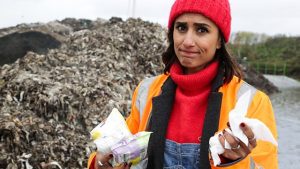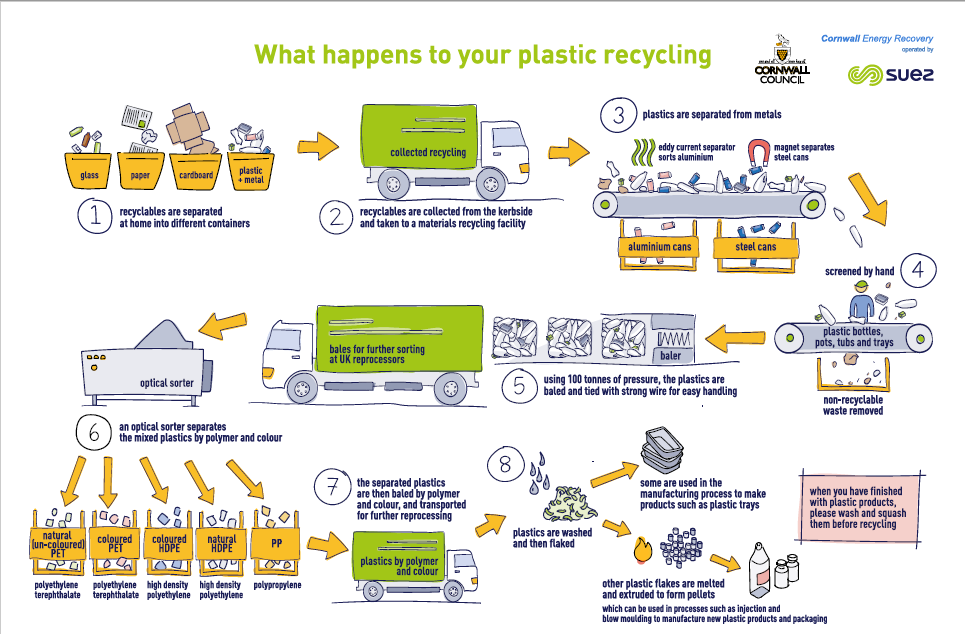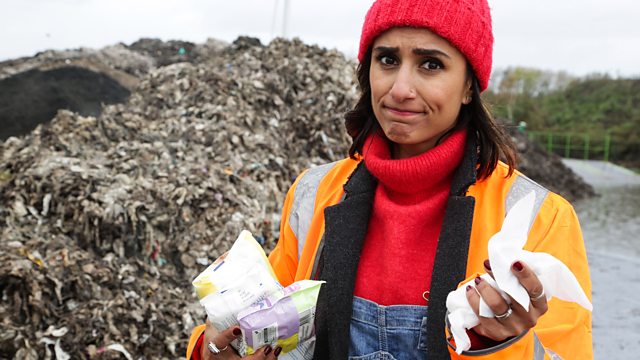In a bid to reassure residents after a recent BBC documentary highlighting the questionable practices of some UK council’s ‘recycling’ initiatives, Cornwall Council have sent out an email explaining their practices. It reads as follows:
Cornwall Council manages your recycling legally, ethically and responsibly
 Many of you will have seen the BBC’s War on Plastic with Hugh and Anita documentary and may be feeling angry and upset about the unethical recycling practices the programme uncovered.
Many of you will have seen the BBC’s War on Plastic with Hugh and Anita documentary and may be feeling angry and upset about the unethical recycling practices the programme uncovered.
We are writing to assure you that Cornwall Council manages residents’ waste and recycling legally, responsibly and ethically.
Is my recycling being dumped on developing countries?
No. You’re recycling is not being dumped on Malaysia, nor any other developing country.
Is my recycling really be reprocessed? I’ve heard goes to landfill?
Your recycling is not being dumped in landfill anywhere. An impressive 99.3% of the recycling you put out for us to collect at the kerbside is actually recycled – and mostly here in the UK – into new glass bottles, car parts, aeroplane components, cardboard and more. A small percentage is reprocessed in Europe, again legally, responsibly and ethically.
The .7% we don’t recycle is made up of items that aren’t actually recyclable. Either they’re contaminated with food waste, or residents have put them out for recycling by mistake and they’re not actually one of our recyclable materials, like plastic cling film, for example. These items are picked out by hand at our Materials Recycling Facilities (MRF), sent to the Cornwall Energy Recovery Centre (CERC) in St Dennis, incinerated and converted into household electricity.
Can I come and see for myself?
We encourage residents to visit our facilities to see for themselves how we sort material for recycling at the MRF and how we turn your black bag rubbish into household energy at the CERC. You can book a free tour here. www.cornwall.gov.uk/recycling
How can you be sure where our recycling is ending up?
Cornwall, unlike many local authorities, has an unusually clear line of sight on where its recycling goes, where and how its reprocessed, and what it’s turned into.
How come?
While we have work to do to raise our recycling rate here in Cornwall, something we can all be proud of is the exceptionally high quality of the recyclables we send for reprocessing.
Why is quality important?
The high quality means our recyclables have value on the market. That means we can sell our recycling to reputable reprocessors here in the UK, which are carefully vetted by our contractor, Suez, rather than having to pay a company to deal with our low quality recyclables, which can result in illegal dumping.
Who do you send our recycling to?
You’ll find a list of our recycling destinations here. We use up to seven different contractors at a time, depending on changes in the market. We are unable to name the contractors, as the details are commercially sensitive, but you can see here that they are all based in the UK and subject to rigorous vetting by our contractor, Suez.

How does Suez vet its contractors?
SUEZ has a dedicated compliance manager who checks all reprocessors and sub-contractors before entering into a trading agreement with them. These checks are to ensure the materials are handled responsibly, in line with best practice and in accordance with all the relevant UK legislation.
Not only does Suez check the reprocessor or sub-contractor has all the relevant UK licences, the company also draws up a bespoke contract for any business it trades recyclable materials with.
This bespoke contract makes reprocessors undertake to comply with good industry practice and all applicable laws. Furthermore, dealers and brokers must provide evidence that each and every consignment of recyclable material has reached the end recovery facility. Suez also requires these companies, on a yearly basis, to give written confirmation that the end recovery facility has all the relevant permits and licences to operate and operates in compliance with EU law.
Suez audits this information each year to ensure it remains up to date through the lifetime of our trading agreements.
Why is Cornwall’s recycling of higher quality than many other areas of the UK?
One reason we have such high quality recyclables to trade is that we only collect items that have a market value and can be recycled responsibly and ethically – for all the reasons the War on Plastic documentary revealed.
We could collect a wider range of recyclables at the kerbside, but we couldn’t be sure all these items were being reprocessed ethically and responsibly. We couldn’t be sure the lower value recycling items weren’t being taken away by a disreputable sub-contractor who would dump it. Cornwall Council has made a conscious decision to prioritise ethical reprocessing.
We have residents to thank for the high quality of our recyclables. We ask you to sort your tins, plastics, cardboard, paper and glass at home, rather than chucking it all in one bin. While the one bin system is more customer-friendly, it results in low quality recyclables.
We hope this reassures you that here in Cornwall, we can be confident and proud that the materials we send for recycling are being reprocessed legally, responsibly and ethically within the UK.
I have more questions, who can I speak to?
Cornwall Council has a dedicated Waste and Recycling Community Engagement Team who can answer your questions. They also give talks and take questions from community groups. You can get in touch with them here.
Cornwall Council
Communications and Engagement Team

